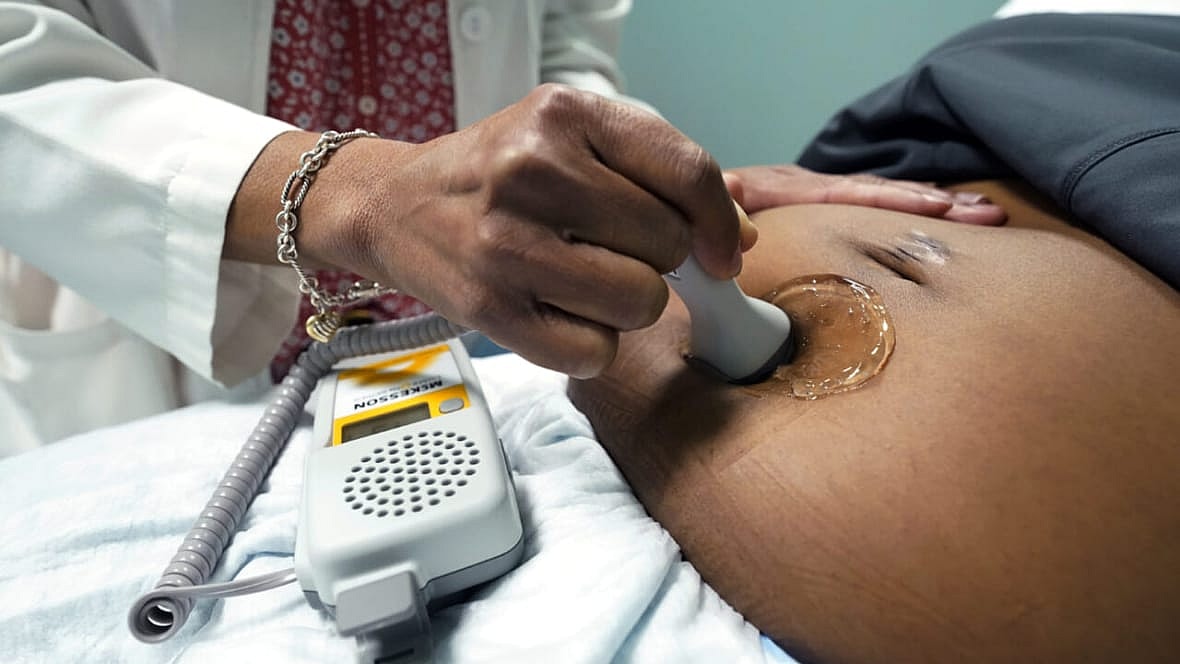Abortion advocates believe Florida Governor Ron DeSantis is putting politics over the health of pregnant women following the official passage of a controversial abortion ban legislation.
On Thursday, DeSantis signed the Heartbeat Protection Act into law, which bans most abortions after six weeks of gestation.

The statute has some exceptions and permits abortions for women who face life-threatening complications during pregnancy and permits abortions up to 15 weeks for women who are victims of human trafficking, incest or rape, as theGrio previously reported.
The Republican governor took to Twitter shortly after signing the bill and said the act “expands pro-life protections and devotes resources to help young mothers and families.”
However, advocates like Kara Gross, legislative director for the ACLU, are calling the ban “extreme.”
“It is an extreme abortion ban and bans abortion after six weeks of pregnancy, six weeks from the date of an individual’s last menstrual period before many people even know that they are pregnant,” Gross told theGrio.
The average woman becomes aware that she is pregnant a little after five weeks into the pregnancy; however, if other factors come into play, she may not be aware until several weeks later, according to the National Institutes of Health (NIH).
Gross also said that this legislation would especially impact Black women.
“This will disproportionately harm Black and brown individuals, people who have fewer resources, and those who live in more rural communities,” she said.
Gross previously told theGrio that this bill will “force people to have pregnancies against their will.” This will have a greater impact on Black women because the “maternal mortality rate is three times higher for Black women than it is for white women” in Florida.
In a public statement, U.S. Rep. Maxwell Frost, D-FL, said that “DeSantis and the Florida Republican legislature have once again made clear that they believe the government should have control over someone’s personal, private medical decisions.”
He added, “This is a vile and disgusting abuse of power. Reproductive healthcare is a fundamental human right. We must protect bodily autonomy and choice for all people.”

Aurelie Colón-Larrauri, Florida state policy advocate for the National Latina Institute for Reproductive Justice, said she is “outraged” by the passage of Florida’s near-total abortion ban.
In a statement provided to theGrio, she said, “[Politicians] are putting politics over the health and wellbeing of Floridians. This law bans abortions before most people even know they’re pregnant.”
She continued, “Bans on abortion care harm our communities and families and do nothing to protect anyone’s health or safety. We know the impact will fall hardest on…communities of color.”
Elisabeth Smith, director of state policy and advocacy at the Center for Reproductive Rights, said, “Pregnant people are being pushed to the brink of death because they can’t get an abortion.”
She added, “Yet Florida lawmakers have rushed this dangerous ban through the legislature with no concern for their citizens and how it will harm them. This bill threatens to end abortion almost entirely amid a growing public health crisis.”
According to Politico, this latest ban comes a year after DeSantis signed a 15-week abortion ban into law following the Supreme Court’s decision to overturn Roe v. Wade. In response, several organizations, such as Planned Parenthood and the ACLU filed suit against the ban calling it unconstitutional.
Florida’s Supreme Court granted cert to take on the case earlier this year, thus halting the 15-week ban. As a result, the Heartbeat Protection Act will only go into effect if the state’s Supreme Court affirms the 15-week ban legislation, as theGrio previously reported.
TheGrio is FREE on your TV via Apple TV, Amazon Fire, Roku and Android TV. Also, please download theGrio mobile apps today!

